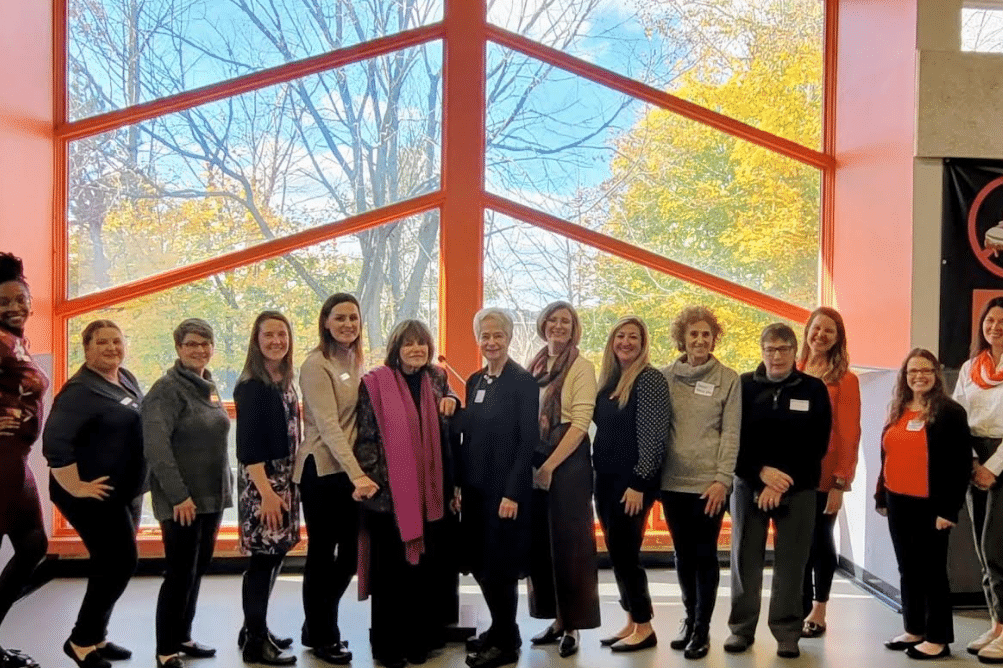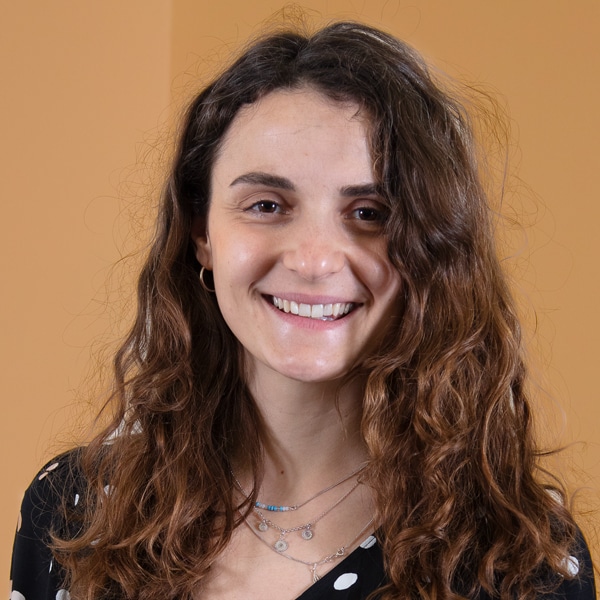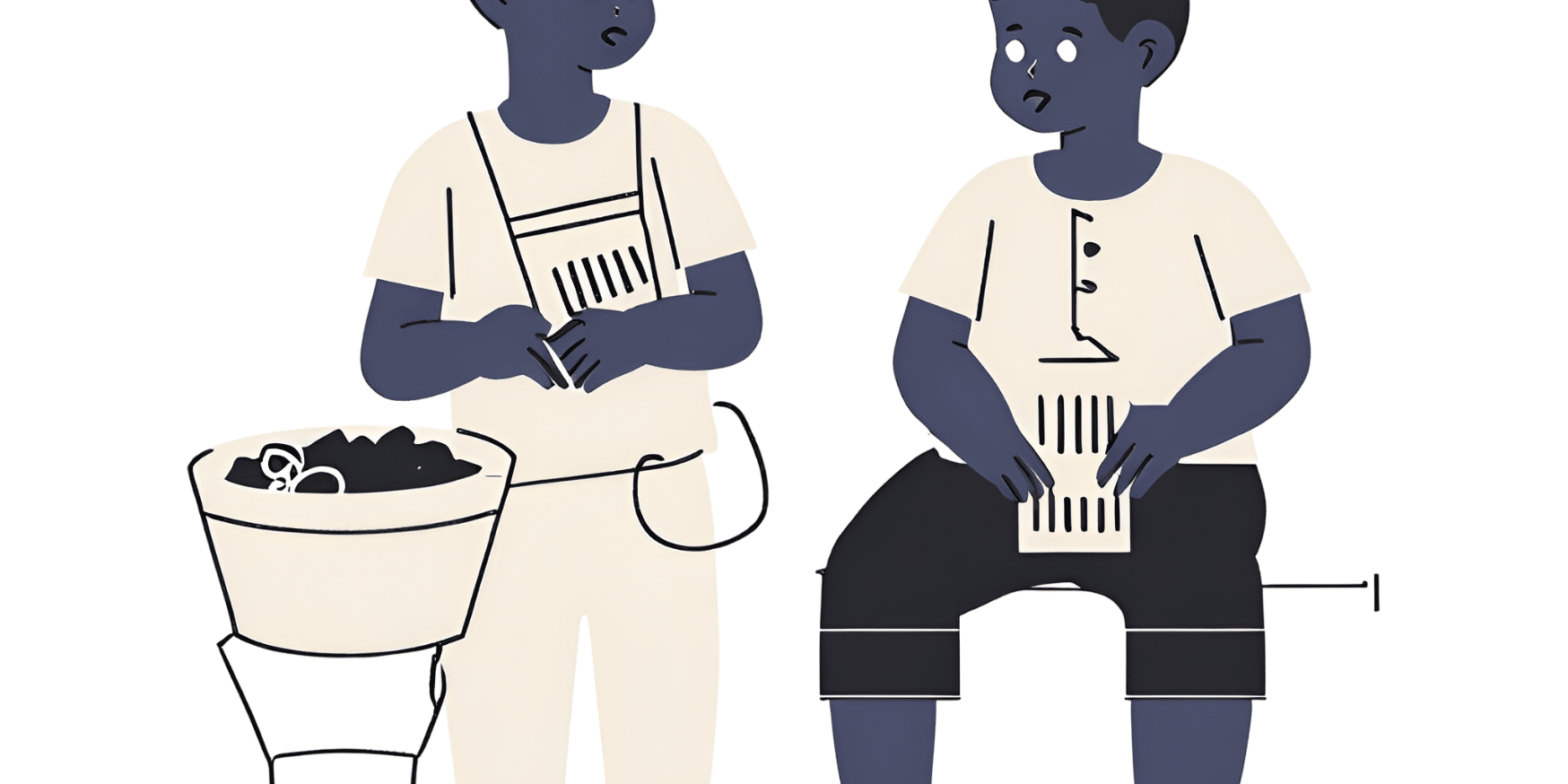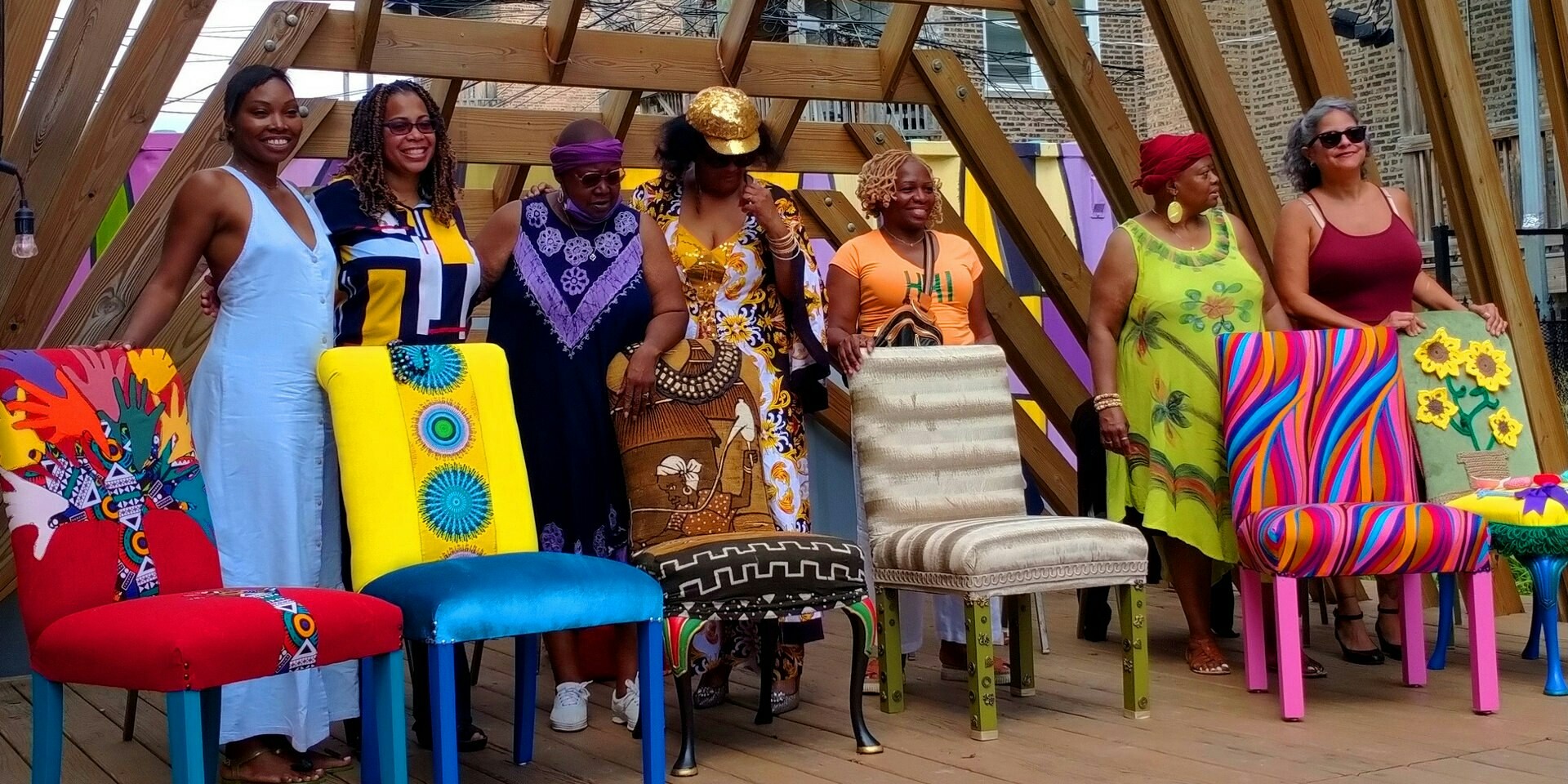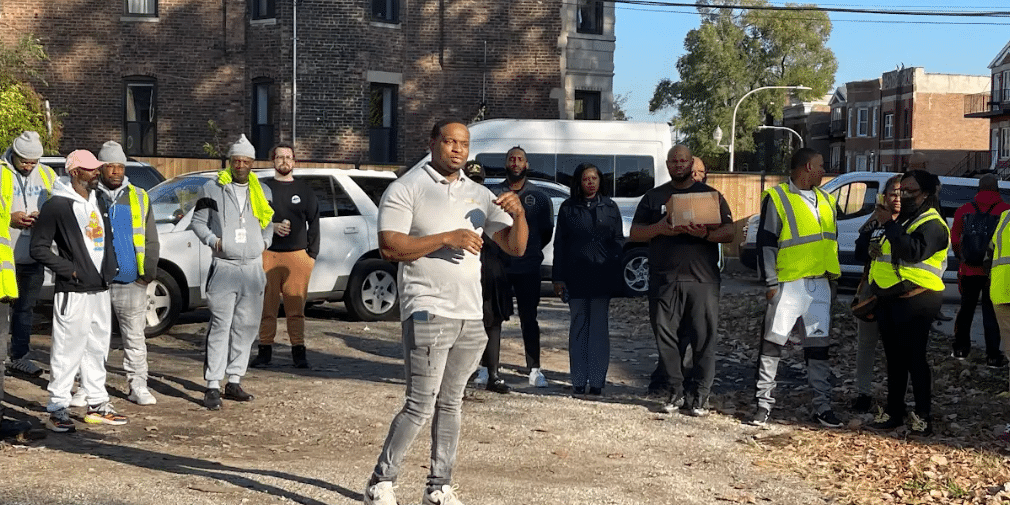Patricia Novick, 2023 Goldin Global Fellow, from Chicago, USA, has an extensive career in civil society and supporting human rights with a deep commitment to social justice, positive social change, and community building.
Patricia’s long career in social justice began in the 1960s when she worked directly with Martin Luther King Jr., taught the first course on women’s studies at a university in Chicago, was arrested more than 25 times for civil rights protests, and was a member of the Jane Collective, which provided abortion services. Having a rich background and engagement with the community, Patricia, who has doctorate degrees in Clinical Psychology and Ministry, joined the 2023 Goldin Global Fellowship to foster collaboration between activists and pave the way for communities to thrive.
Her efforts include supporting many Fellows to receive opportunities to participate in coaching and training programs at no cost that would otherwise have cost more than $3,000 and collaborating with the Midwest Academy to provide additional training in community organizing, specially designed for Goldin Fellows, at no cost. She values the relationships formed during the Fellowship and is glad to have enhanced her own network of international social change leaders.
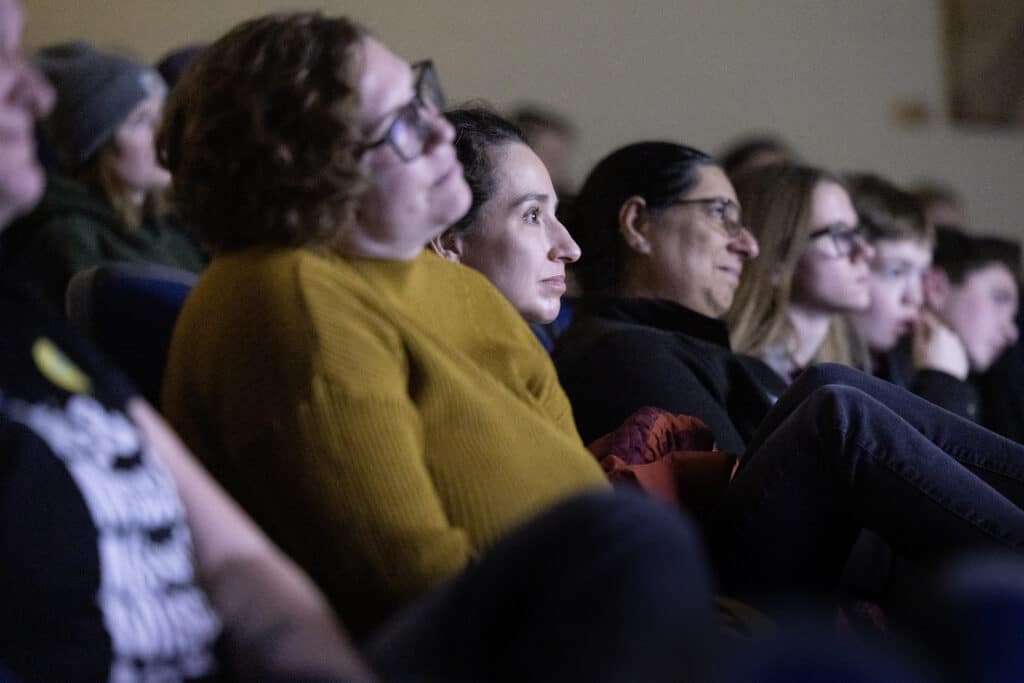
Organizing Around Reproductive Rights with the Goldin Global Fellowship
Patricia shared how she benefited from the Goldin Fellowship and the weekly roundtables that brought together Fellows as grassroots leaders from around the world to work together: “I did the Fellowship to support international social change leaders: this is why I wanted to be a Goldin Fellow, to interact with and support the other Fellows.”
According to her, the quality of the relationships created between Fellows will long remain: “What I got from the Goldin Global Fellowship is the quality of the relationships with those I met, and I will maintain these connections over time. I was a bit older than the other Fellows; nevertheless, what they had to offer me was invaluable. I want to highlight that what was most valuable, in addition to the excellent training we received, was who I met and who I will continue to have in my life. I was very moved by the work that many of the Fellows are doing, and by who they are as people.”As part of the Fellowship, she hosted a series of events in Maine, to raise awareness and action for women’s reproductive rights. In addition to meeting in classrooms with students in gender and women’s studies, and having lunches with legislators and other influential leaders, she gave talks that were open to the public at five universities, with audiences of as many as 200 people per university.
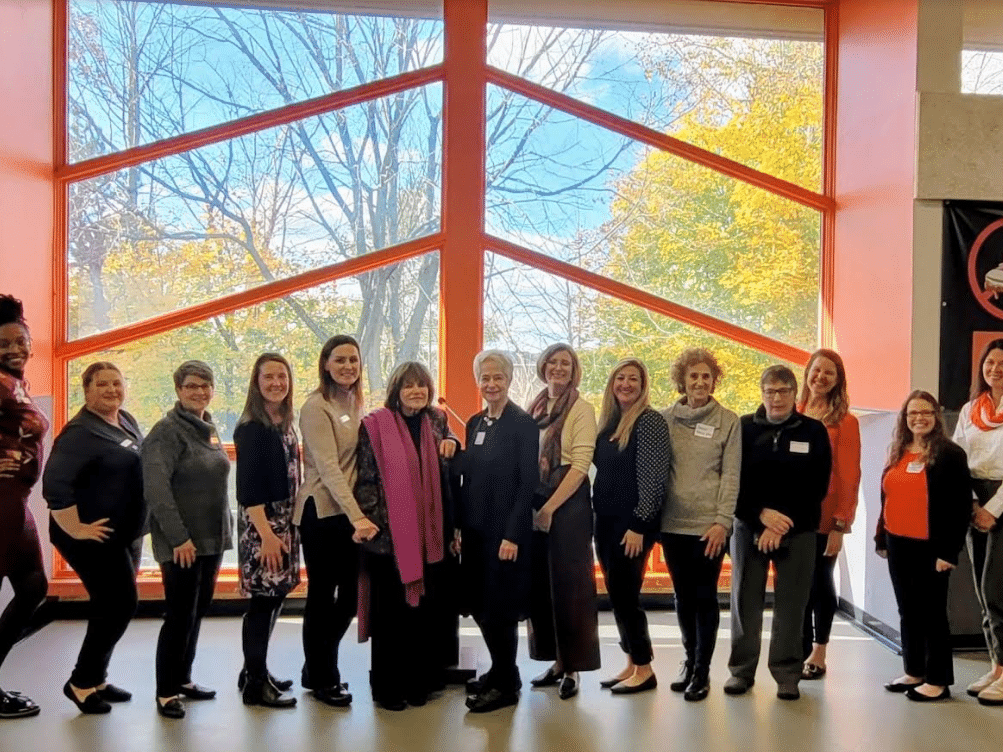
At the public gatherings, an award-winning documentary film about the Jane Collective was shown. Patricia comments on the importance of this documentary: “In this country, reproductive rights together with other issues, like climate change and gay rights, are an important cluster […]. Hence, the purpose of my summit was to use the Janes film to bring together those organizations. In the lobby were representatives of all these organizations. The idea was to encourage participation and voting. The purpose of the summit was to bring together people who are committed to these issues, to have them sign up to volunteer to work on these issues in preparation for the national election.” She continues, “If we organize, we can change the world. So, I am calling upon you to volunteer on the issues that matter to you and all of our futures.”
In addition to Maine, she also participated in screenings of the documentary in Arizona, Indiana, Nevada, Wisconsin, and Georgia. She also arranged for the film to be available to all Goldin Global Fellows for viewing with groups in their communities, outside the USA, and hosting discussions afterward. She emphasizes the community support she received about the US screenings: “We got letters and emails, and the feedback was very positive.”
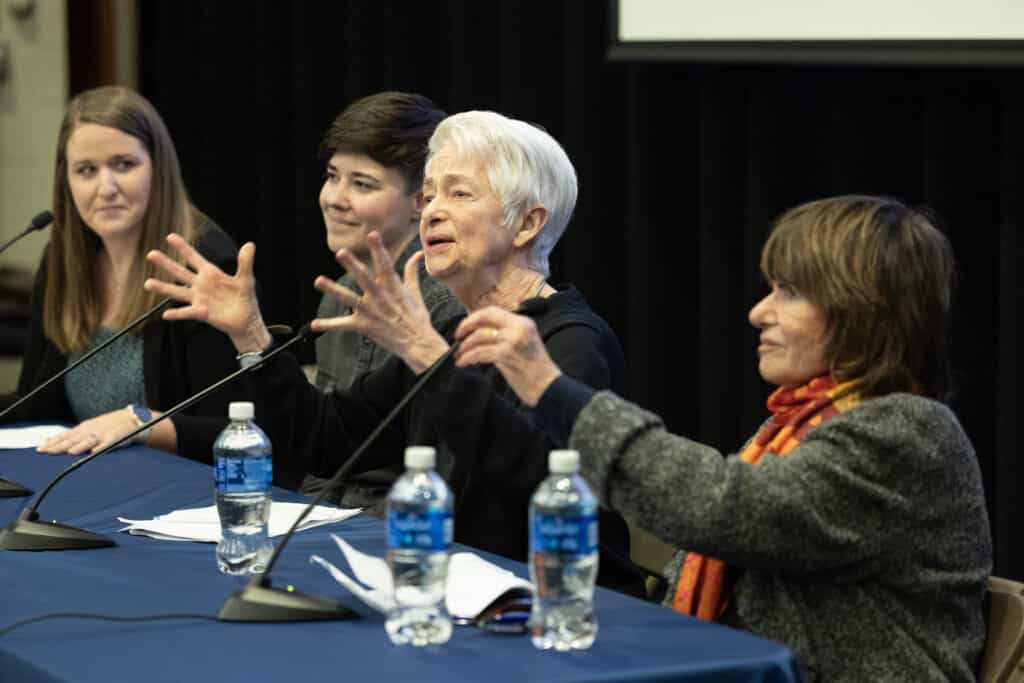
Patricia’s Contribution to the Community in Dealing with the Migration Crisis
An important way that she is helping her community is by giving her assistance in dealing with the migration crisis. She explains why this is important and timely: “My city, Chicago, is the most segregated in the country. It is a mosaic of communities that touch but do not integrate. Last year and this year, some US states sent more than 20,000 immigrants seeking asylum to Chicago. The large number of migrants suddenly coming to our city creates a disturbance in the systems of these close communities.”
Her work includes serving Latinos, organizing dinners to build better relationships among Latino and African-American communities, and organizing and co-leading a program to bring together African-American and Latino leaders to create joint civic projects. As an ordained minister, she also works through churches. “The goal through the church is to get people placed in other people’s homes and to provide resources like food and shelter, medical care, schooling for the kids, and all the basic resources,” she said.
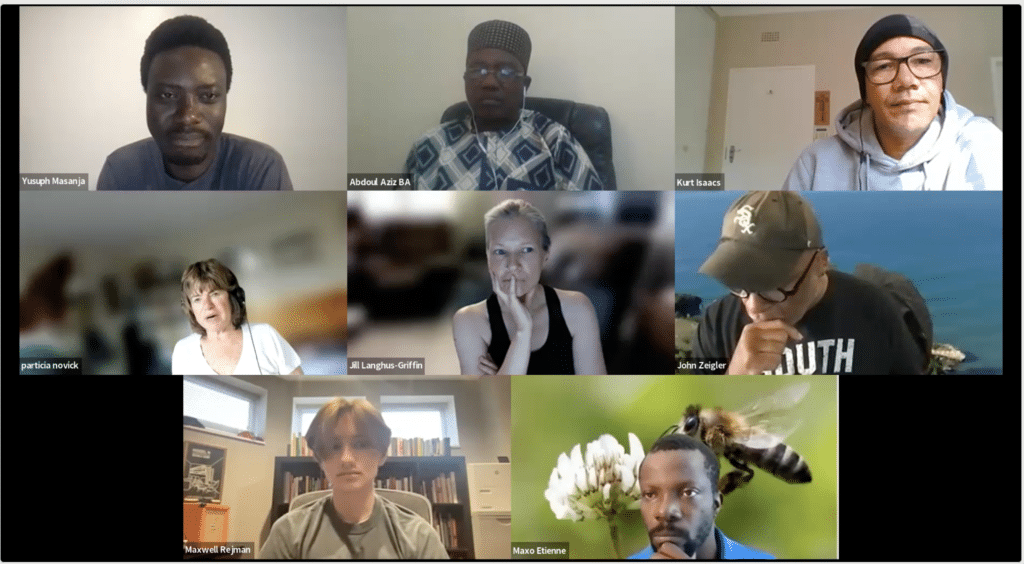
She adds that what’s currently happening in Chicago is that the institutional response to the migration crisis is not always the most appropriate: “They [responsible institutions] spent all this money to build a tent camp, and the environment is not acceptable, nor is the quality of the ground. Currently, we don’t have enough places for the asylum seekers to live, so many of them are living in police stations and tents.” Patricia aims to change this for the better, while tirelessly putting her effort into the betterment of the community in Chicago through social change and organizing.
You can watch Patricia in the HBO documentary, “The Janes”.
